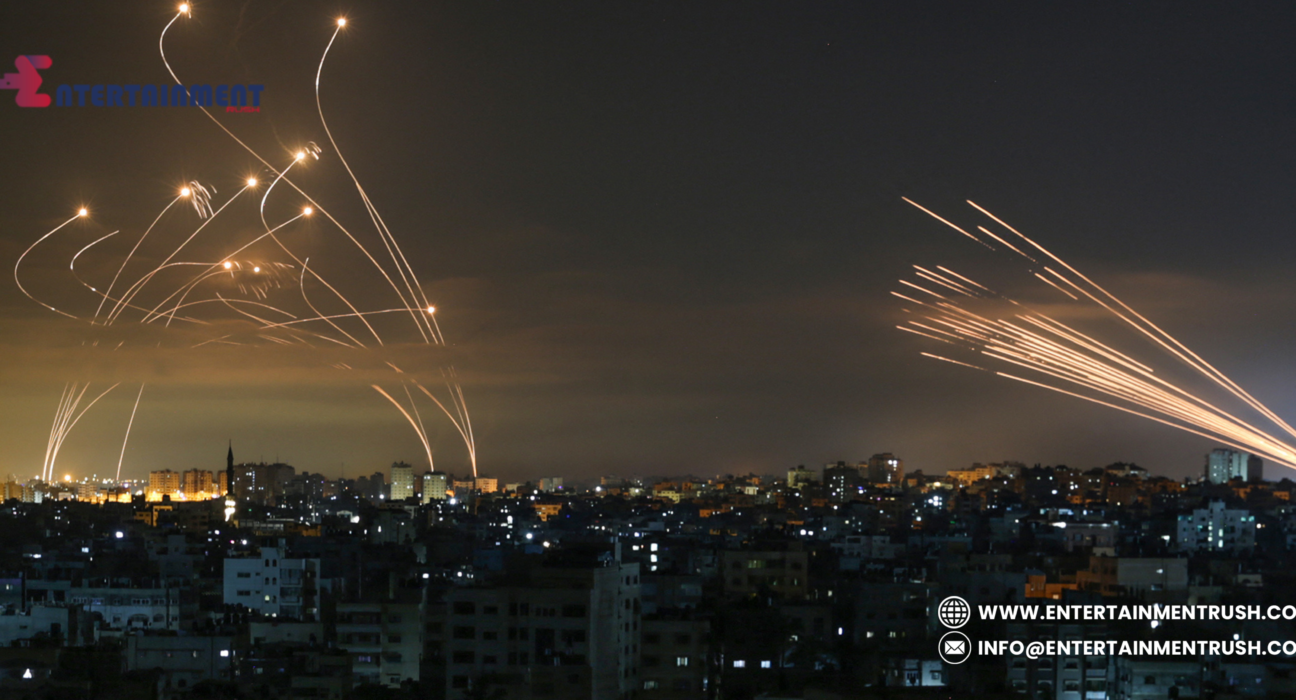In a serious increase in tensions in the Middle East, Israel’s military reported that Iran fired about 180 missiles targeting the country. Rear Admiral Daniel Hagari, a spokesperson for the Israel Defense Forces (IDF), mentioned that there were no injuries from this attack. However, he stressed that this is not the first time Iran has posed a threat. “We are ready for them,” he said, indicating Israel’s readiness to respond.
A Serious Attack
Hegari described the missile attack as a “serious attack on us,” warning that there would be “serious consequences” for Iran. The Islamic Revolutionary Guard Corps (IRGC) in Iran claimed responsibility, saying they acted in retaliation for the deaths of key figures, including Nasrallah, as reported by Iran’s Tasnim news agency.
Iran’s Justification and Warnings
After the missile attack, Iran’s mission to the United Nations said their actions were a response to what they called the “terrorist acts of the Zionist regime.” They warned on social media that if Israel retaliated or continued its attacks, Iran would respond even more strongly.
U.S. Alerts About Imminent Threats
On the same day, the White House warned that Iran was likely to launch a missile attack against Israel. As fears grew, people in Tel Aviv and other cities were advised to stay near shelters for safety.
Just hours before the missile attack, the White House reported that it had intelligence suggesting Iran was preparing a major missile strike. U.S. officials stated they were helping Israel get ready to defend itself, adding that if Iran took military action, there would be serious consequences for them.
Possible Targets and Preparations
Reports indicated that Iran might target three Israeli air bases and an intelligence facility north of Tel Aviv. Before the attack, the intelligence base in Glilot was evacuated, and the Israeli military put plans in place to protect the personnel at these sites.
Following the White House’s warning, President Joe Biden held a meeting with Vice President Kamala Harris and top national security officials to discuss Iran’s planned missile strike. They reviewed how the U.S. would assist Israel in intercepting any missiles and ensuring the safety of American personnel in the region.
Impact on Regional Stability
This missile attack adds to rising tensions between Israel and Iranian-backed groups in the Middle East, including Hamas in Gaza and Hezbollah in Lebanon. There is a growing fear that Iran’s actions could lead to a larger conflict in the region. U.S. and Arab diplomats are worried about how Israel might respond, especially the possibility of Israel attacking inside Iran as retaliation.
Israeli Prime Minister Benjamin Netanyahu emphasized his country’s determination, stating, “There is no place in Iran that the long arm of Israel cannot reach, and that’s true of the entire Middle East.” His words highlight Israel’s military strength and commitment to facing threats from Iran.
Conclusion
As tensions rise, the world is watching closely, anticipating possible fallout. The situation highlights the fragile power balance in the Middle East and the urgent need for diplomatic efforts to calm hostilities. The international community must stay alert to developments, as the effects of this attack could extend beyond Israel and Iran, affecting regional stability for years to come.
